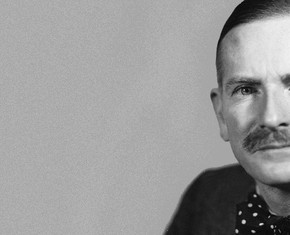The views expressed in our content reflect individual perspectives and do not represent the authoritative views of the Baha'i Faith.
For the followers of later faiths, one of the more surprising things about the Jewish scriptures—known as the Tanakh or Old Testament—is their relative silence about a spiritual human soul and life after death. This seeming silence leads some to the misconception that Judaism does not teach about life after death at all.
The same fact led some early Protestants to lean toward a view called “soul sleep” or “conditional immortality.” In its simplest form, this doctrine maintains that physical death equates to non-existence, and that life is God’s gift. The doctrine maintains that humans die as a result of their sin, and no longer exist until resurrected by God. The punishment of the damned at the end of time is not eternal fiery torment, but eternal death—total annihilation. Several denominations, including Adventists (heirs of the 19th century Millerites, whose messianic hopes centered on the year 1844) hold these beliefs.
This perspective partly overlaps with the Baha’i teachings, although Baha’u’llah makes it clear that our spiritual reality always survives bodily death. However, this spiritual soul cannot exist independently of God—on the contrary, it belongs to God and is a sign of His attributes. In this sense, Baha’u’llah wrote, its immortality is conditional or contingent:
When the soul attaineth the Presence of God, it will assume the form that best befitteth its immortality and is worthy of its celestial habitation. Such an existence is a contingent and not an absolute existence, inasmuch as the former is preceded by a cause, whilst the latter is independent thereof. Absolute existence is strictly confined to God, exalted be His glory. – Gleanings from the Writings of Baha’u’llah, p. 157.
In Baha’i thinking, the state of the wicked after death can be described as a kind of relative non-existence:
As to the question of annihilation and destruction of the Spirits… It was not intended to convey the idea that the unbelieving souls are absolutely annihilated. Nay, rather, it was meant that the existence of the evil spirits in comparison to the existence of the sanctified souls was like unto annihilation. As you clearly behold, the existence of mineral in comparison with the existence of man is like unto non-being… – Tablets of Abdul-Baha, Volume 1, pp. iv-v.
In the Baha’i teachings, we learn that God’s mercy operates in the next world (compare Matthew 12:32) and that even the blindest, most “non-existent” souls can be redeemed through His grace.
Coming back to the Hebrew Bible’s teaching on soul and afterlife—does its reticence about these topics really amount to a denial of them? Did the Hebrew prophets teach that no spiritual soul exists in man, and that physical death thus ends one’s existence?
Many passages in the Bible rule this out. One of the most explicit of these is the Bible’s claim that the prophet Samuel posthumously appeared to the first Israelite king, Saul, and prophesied Saul’s own death the next day, in 1 Samuel 28:11-20.
The circumstances of this case warrant special note. Torah law forbids sorcery and necromancy—occult communication with the dead. The ancient pagans of Canaan worshipped their ancestors, which violated the strict monotheism of the prophets: “Hear O Israel, the Lord our God, the Lord is one” (Deut. 6:4; 18:11; Lev. 19:31).
Samuel’s appearance occurred in the course of Saul’s visit to a necromancer known as the witch of Endor (1 Chron. 10:13). Because of this, it’s sometimes assumed that it couldn’t have been Samuel, the prophet of God, who appeared to Saul, but some demonic entity impersonating Samuel. How could a witch authentically summon up the disembodied spirit of one of God’s prophets? The problem with this conjecture is that the biblical narrative does not state that an evil spirit impersonated Samuel. It straightforwardly names the apparition Samuel, exactly as in life, and quotes him prophesying to Saul in the name of God. If this were a case of mistaken identity, the mistake was not only Saul’s, but seemingly the Biblical author’s.
Given the broader context of scripture, Samuel’s appearing to Saul in this situation does not validate the use of occult means to communicate with the dead. The Jewish scriptures teach that God can use even the practices He condemned in order to visit judgment on those who turned aside from His path.
There is a Torah passage discussing the possibility of a false, idolatrous prophet producing signs and miracles. God says that in such a case, the miracles come from Himself, as a test of the Israelites’ faith: “For the Lord your God proveth you, to know whether ye love the Lord your God with all your heart and with all your soul” (Deut. 13:3; in the Jewish numbering Deut. 13:4).
To the prophet Ezekiel, God said that He would answer idolaters according to their own expectations:
“Every man of the house of Israel that taketh his idols into his heart, and putteth the stumbling block of his iniquity before his face, and cometh to the prophet; I the Lord will answer him therein according to the multitude of his idols; that I may take the house of Israel in their own heart, because they are all estranged from Me through their idols.”—Ezek. 14:4-5.
The narrative in 1 Samuel states that the witch herself reacted to the appearance of Samuel with shock (1 Sam. 28:12), implying that Samuel’s post-death appearance was unexpected and the result of divine intervention.
Probably for all these reasons, ancient Jews took the account at face value. The Book of Ben Sira (canonized as Sirach in the Catholic Bible) relates:
Samuel… was besought even after his death, and he declared to the king his ways: he lifted up his voice from the earth in prophecy, to stop the iniquity of the people.”—Sirach 46:13, 20, from the Hebrew in Sefer ben-Sira hash-Shalem, Bialik publishers Jerusalem, 1997.
In light of this startling incident, we can see that the Hebrew Bible does not teach that physical death is the end of one’s existence. We are still left with the question of what it does teach about the human soul, and why detailed information about the life hereafter is hard to find in its pages—questions we will take up next.
Next: The Breath and the Soul
















Comments
Sign in or create an account
Continue with Googleor